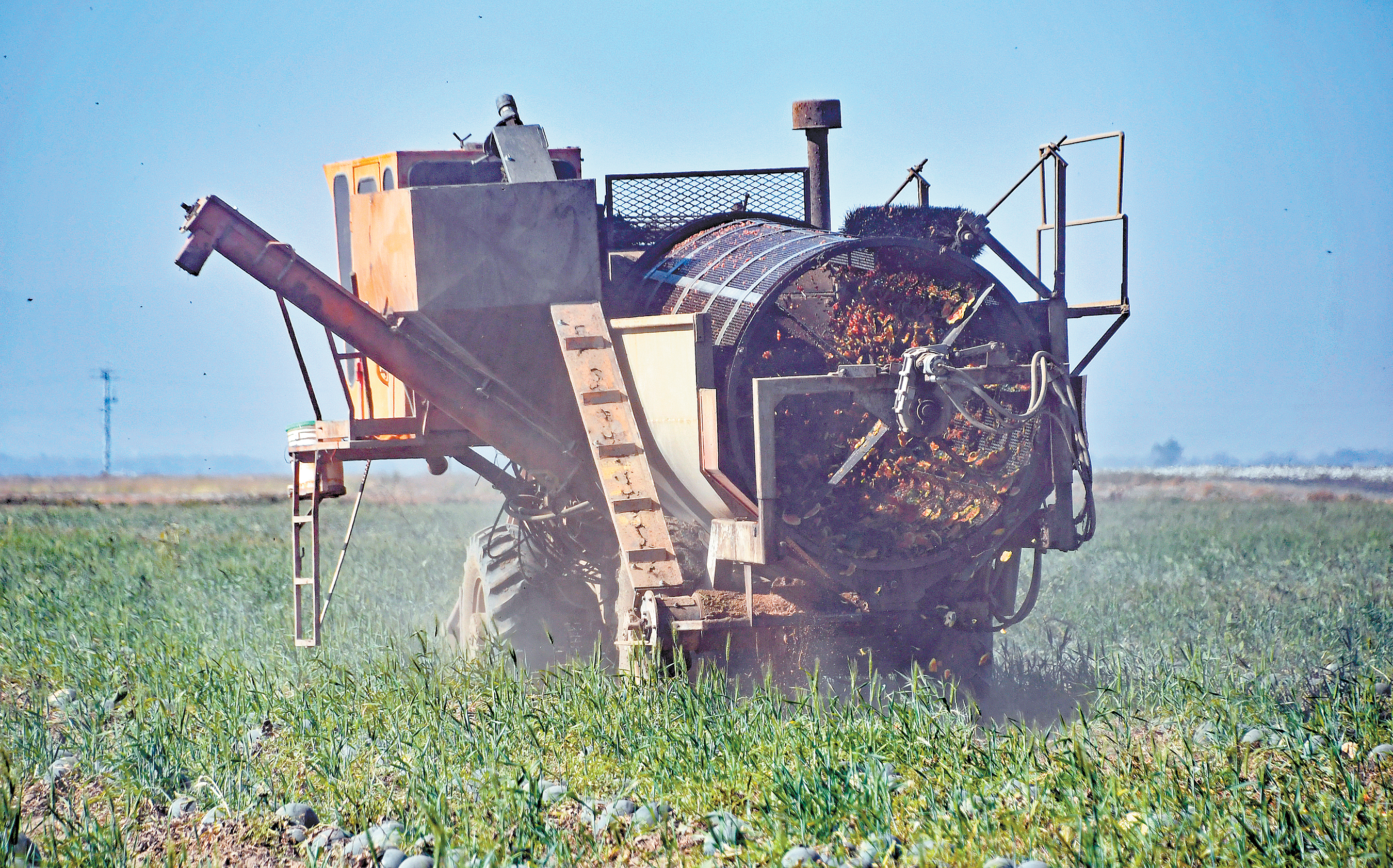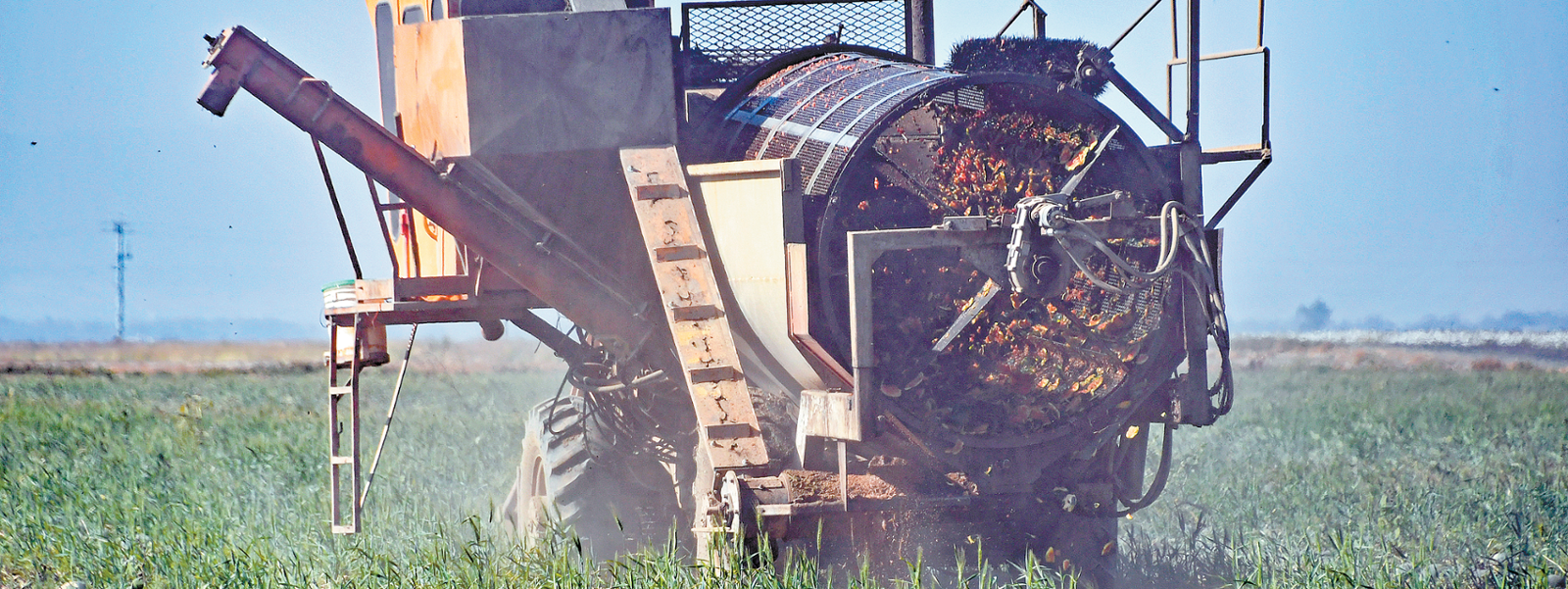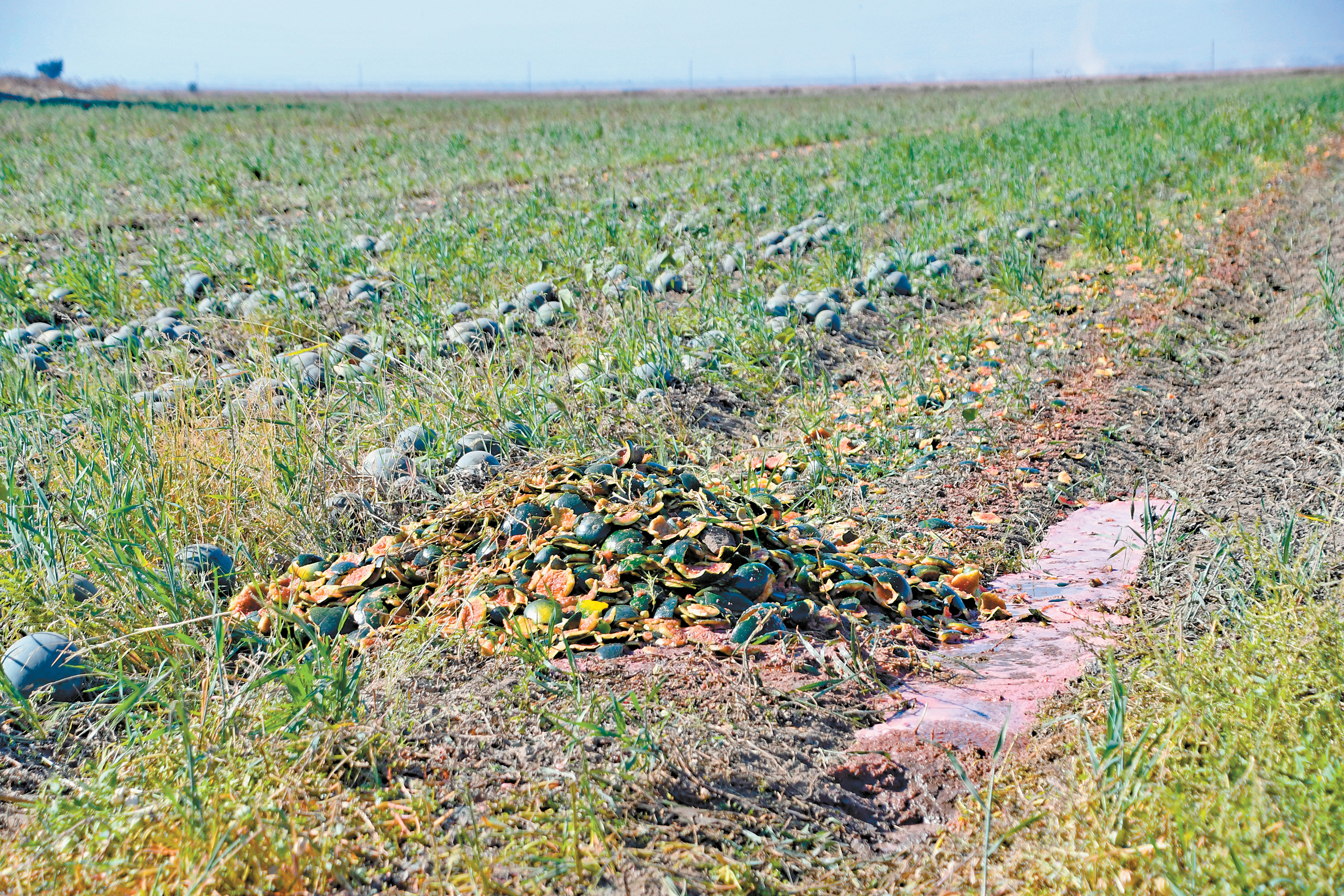Farmers worry as seed firms scale back production

During vine seed harvest the fruit is ground as seeds are separated and preserved. Seed acreage has declined amid reduced production demand.
Photo/Vicky Boyd


Photo/Vicky Boyd
By Vicky Boyd
Vegetable seed companies have cut back vine seed production this season, sending Sacramento Valley producers who used to grow them under contract scrambling to find replacement crops.
While representatives from some seed companies would not comment on the situation, others blamed a complex set of variables, including overproduction last season for decreased production needs this year.
One of those affected by the cutbacks was Driver Family Farms, which grows a variety of row crops near Knights Landing and Robbins. Three years ago, Ethan Driver, who farms with his father and uncle, added vine seed production to the farm’s crop lineup. It was part of his goal to expand the number of row crops the farm grew beyond its staple rice to spread risks.
Initially, Driver said, he wanted to try only 50 acres to get his feet wet, but the seed company urged him to plant 100 acres of mostly open-pollinated watermelon along with a few acres of squash seed. In 2023, Driver said he had planned on 100 acres but was talked into producing more than 200 acres of mainly watermelon with a few acres of cucumber seed.
With two years under his belt, he said he felt comfortable producing vine seed and was planning on about the same acreage as 2023.
This year, the seed company notified the Drivers to say it wanted only 50 acres of vine seed from him. The cutbacks also came at the same time the farm lost its hybrid sunflower seed contract when Syngenta pulled out of the California market.
“Everything happened all at the same time, and it makes it tough,” Driver said. “The sunflowers are big here, the vine seed also, but the sunflowers were the main hit for us. With those two crops being cut, those were good money makers compared to the other crops.”
Driver has been looking for other field crops to replace the losses in the farm’s rotation. He has received a contract for a small amount of chickpea seed production, which is a new crop for the farm. The voids he can’t fill with other crops will be planted to mainly corn with some milo.
Colusa County Agricultural Com-missioner Anastacia Allen said she has seen the fallout from reduced vine seed contracts.
“You’re seeing a lot of corn being planted,” she said. “We know corn is just what you plant when you have nothing else to plant.”
The fewer acres of vine seed production also has translated into fewer inspections for her office. Seed growers must apply to agricultural commissioner offices for field inspections during the growing season to check for potential seed-borne diseases. The resulting phytosanitary certificates, as the inspection reports are called, are required by many importing countries.
Normally by this time of year, Allen’s office would have begun to receive requests to have vine seed fields inspected. So far, she said, it hasn’t received any.
“We should have some by now typically,” Allen said. “We’re still keeping our fingers crossed.”
The same thing happened with production of winter seed crops, notably onions and coriander, in Colusa County. Normally, she said the office would receive inspection requests beginning in October and November. This winter, it received none.
Michael Willey, North America vegetable seeds production lead at Bayer, attributed the reduced vine seed contracts this year to overproduction in 2023. Bayer markets under the Seminis and De Ruiter brands.
“The Sacramento Valley went through an unprecedented three-year drought from 2020-2022, resulting in challenges of many companies growing vine seeds to meet the needs of customers during this period,” he wrote. “Conversely, last year saw environmental conditions that led to exceptional yields.
“This led to higher inventories and reduced the need for production in 2024,” he added. “Bayer sees this reduction of acres as temporary and as we ramp up to meet customer and market needs for 2025 and beyond.”
Jace Knight, a co-owner of Dixon Seed in Glenn, attributed the reduced vine seed acreage to a complex set of factors. Even Syngenta pulling out of hybrid sunflower seed production and closing its Hamilton City processing facility indirectly affected growers looking for high-value crops such as vine seed to fill the void.
“(Syngenta) pulled out so late, it became everyone just scrambling around for anything,” Knight said. “Everyone just started asking for contracts.”
Even as a small- to mid-scale producer of open-pollinated cucurbits and hybrid watermelons, he said he faced the daunting task of forecasting supply and demand. Unlike some of the major commodities traded on the Chicago Board of Trade, vine seeds are a niche crop and aren’t traded publicly.
And the few large companies that dominate vine seed production keep production and marketing information close to their chests.
In his own case, Knight said yields in 2023 were 127% of normal, with squash even higher at 137% of normal. As such, he cut production about 15% to 20% this year.
Vine seed sales also are global, so the value of the U.S. dollar or political upheaval elsewhere may affect demand and potential contracted acreage in California. Knight pointed to the unrest in the Middle East as an example.
“It’s a big squash area, producing for the European Union and especially in the Middle East and Africa,” he said. “Because of the difficulties in the area, the demand isn’t very big.”
In addition, high interest rates may play a role as seed companies that don’t want to be stuck with large inventories cut production, Knight said.
“In the seed business, you don’t really know,” he said. “Everyone’s currently holding pretty tight and playing it very conservatively.”
(Vicky Boyd is a reporter in Modesto. She may be contacted at vlboyd@att.net.)




